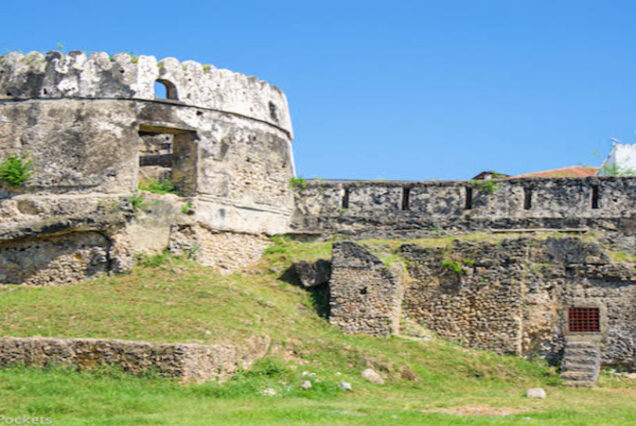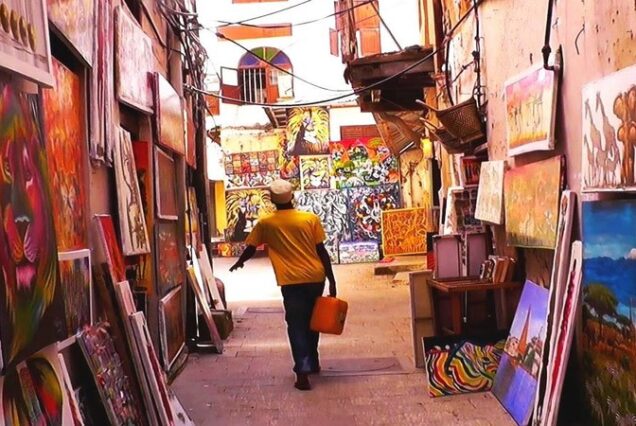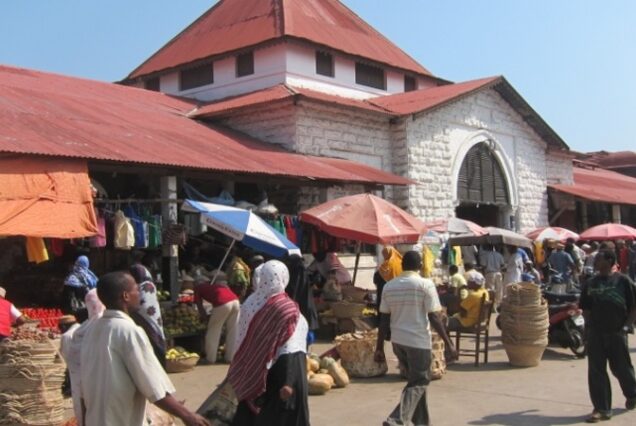
Overview

Stone Town Tour Zanzibar: Discover History and Culture
Zanzibar, an enchanting archipelago off Tanzania’s coast, is celebrated for its rich history, lively culture, and breathtaking landscapes. At the core of this tropical paradise is Stone Town, a UNESCO World Heritage Site that stands as a living museum of Swahili culture and the island’s diverse influences. Embarking on a Stone Town tour allows visitors to navigate its enchanting alleyways, historic edifices, and vibrant markets while uncovering the compelling narratives that have shaped this extraordinary locale. This article offers a comprehensive overview of what to expect from a Stone Town tour, focusing on its historical significance, architectural wonders, cultural experiences, and essential tips for travelers.
Historical Significance of Stone Town
The history of Stone Town is a rich tapestry woven from numerous cultures and civilizations. Initially a modest fishing village, it evolved into a vital trading hub in the 19th century, thanks to its strategic position on spice and slave trade routes. The town’s name, derived from the coral stone used in its buildings, embodies its unique maritime heritage.
Stone Town’s architecture and cultural practices reflect the influences of Arab, Persian, Indian, and European traders. Once the capital of the Sultanate of Zanzibar, remnants of its royal legacy are still visible in the majestic palaces and forts scattered throughout the area. A guided Stone Town tour typically includes visits to significant historical landmarks, such as the Old Fort, constructed in the late 17th century to defend against Portuguese invasions, and the House of Wonders, formerly a ceremonial palace for Sultan Barghash.
As visitors meander through the narrow streets, they can absorb the history embedded in the architecture. The town’s past encompasses not only trade but also struggles for independence and the impacts of colonialism, enhancing the experience of exploring Stone Town and enabling a deeper connection with its heritage.
Architectural Wonders of Stone Town
One of the most captivating features of a Stone Town tour is its stunning architecture. The town is distinguished by intricately carved wooden doors, ornate balconies, and coral stone buildings that embody a fusion of Swahili, Arab, Indian, and European styles. Each structure narrates a unique story, showcasing the exquisite craftsmanship and artistic influences that have defined Stone Town over the centuries.
Among the architectural highlights is the iconic Old Dispensary, a beautifully restored edifice adorned with elaborate wooden latticework and vibrant tiles. Originally established as a hospital in the early 20th century, it now serves as a cultural center where visitors can delve into local art and history. Another noteworthy site is the Anglican Cathedral, built in 1873 on the historic site of a slave market. The cathedral’s striking architecture and poignant past remind visitors of Zanzibar’s intricate legacy.
Strolling through Stone Town feels like stepping back in time. The narrow alleys are lined with shops selling handcrafted goods, spices, and textiles, while local artisans can often be seen creating their works. This blend of old-world charm and modern life creates an enchanting atmosphere that leaves visitors spellbound.
Cultural Experiences on Your Stone Town Tour
No Stone Town tour is complete without immersing yourself in its vibrant culture. As a melting pot of traditions, languages, and religions, the town offers a captivating exploration. Visitors can engage with local communities through various cultural experiences that highlight Zanzibar’s unique identity.
One must-visit spot is the bustling Darajani Market, where locals purchase fresh produce, spices, and fish. The market buzzes with colors and aromas, providing an authentic glimpse into daily life in Stone Town. Tourists can interact with vendors, sample local delicacies like Zanzibar pizza or fresh coconut juice, and buy spices to take home as memorable souvenirs.
Many tours also include opportunities to witness traditional music and dance performances. The Taarab music genre, which fuses African rhythms with Arabic melodies, is especially cherished in Zanzibar. Attending a live performance allows visitors to appreciate the island’s artistic heritage while enjoying an engaging evening filled with rhythm and storytelling.
Culinary experiences are another vital aspect of understanding Zanzibar’s culture. Participating in a cooking class or food tour can shed light on the island’s diverse culinary traditions shaped by Indian, Arab, and African influences. Learning to prepare dishes like biryani or pilau not only delights the taste buds but also fosters a deeper appreciation for Zanzibar’s culinary heritage.
Essential Tips for Your Stone Town Tour
For those planning a Stone Town tour, several practical considerations can enhance your visit.
Included/Excluded
- Entrance fees to key attractions
- Conservation fees
- Friendly and trained guide
- All government fees and taxes
Tour Plan
When exploring the enchanting island of Zanzibar, one of the must-visit destinations is Stone Town. This UNESCO World Heritage Site is not just a place but a vibrant tapestry of history and culture that offers travelers a unique glimpse into the island's rich past. From its winding alleys and historic buildings to bustling markets, there are countless things to see in Stone Town that reveal its captivating story. In this guide, we'll explore the key attractions, historical significance, architectural wonders, and cultural experiences that make your visit unforgettable.
Stone Town has a fascinating history that showcases the influence of various cultures and civilizations. Once a humble fishing village, it emerged in the 19th century as a pivotal trading hub due to its strategic position along spice and slave trade routes. The name "Stone Town" comes from the distinctive coral stone used in its construction, which embodies the maritime heritage of the region.
As you explore, you'll encounter the architectural remnants of the once-thriving Sultanate of Zanzibar, including grand palaces and forts. Key historical sites to visit include the Old Fort, built in the late 17th century to protect against Portuguese invasions, and the House of Wonders, which served as a ceremonial palace for Sultan Barghash. Walking through these narrow streets, you’ll uncover stories that reflect the town’s complex history, including its struggles for independence and the consequences of colonialism.
One of the most astounding things to see in Stone Town is its remarkable architecture. The town is adorned with intricately carved wooden doors, ornate balconies, and coral stone buildings that exhibit a blend of Swahili, Arab, Indian, and European styles. Each structure narrates a story, showcasing the artistic craftsmanship that has evolved over centuries.
Don’t miss the iconic Old Dispensary, a beautifully restored building featuring vibrant tiles and elaborate wooden latticework. Originally a hospital, it now serves as a cultural center where visitors can delve into local art and history. Another essential stop is the Anglican Cathedral, built in 1873 on the grounds of a former slave market, offering poignant insights into Zanzibar's complex legacy. As you navigate the narrow alleys, you’ll find shops selling handcrafted goods, spices, and textiles, allowing you to immerse yourself in the town's enchanting atmosphere.
To truly appreciate the essence of Stone Town, it's essential to engage with its vibrant culture. As a melting pot of traditions, languages, and religions, the town offers numerous cultural experiences that highlight its unique identity.
A visit to the vibrant Darajani Market is a must for experiencing local life. Here, you can shop for fresh produce, spices, and fish while engaging with friendly vendors. The market’s colors and aromas provide an authentic glimpse into daily life in Stone Town, where you can sample local delicacies like Zanzibar pizza and fresh coconut juice.
Many tours also feature traditional music and dance performances. The Taarab music genre, which fuses African rhythms with Arabic melodies, is particularly popular in Zanzibar. Attending a live performance offers an enriching experience filled with rhythm and storytelling. Additionally, culinary experiences such as cooking classes or food tours allow you to explore Zanzibar's diverse food culture influenced by Indian, Arab, and African cuisines, letting you learn to prepare local dishes like biryani and pilau.
For anyone planning to discover Stone Town, knowing some practical tips will enhance your visit. Ensure you wear comfortable shoes for walking along the narrow streets, and consider hiring a local guide to gain deeper insights into the history and culture. Don’t forget to stay hydrated and keep your camera ready—there are countless sights to capture!
Exploring the things to see in Stone Town, Zanzibar will undoubtedly leave you with a lasting impression of this historical and cultural gem.
You May Like
Maalum Cave
Safari blue trip
Nungwi Village Tour
Sunset Dhow Cruise Zanzibar
Dolphin Tour

A Zanzibar Tours and Excursion Company providing Day Tour and Holiday Tour packages at affordable cost.
Contact Info
- P O Box 61, Stone Town Zanzibar, Tanzania
- Copyright ©2024 All Rights Reserved By zanzibar-tours.co.tz









